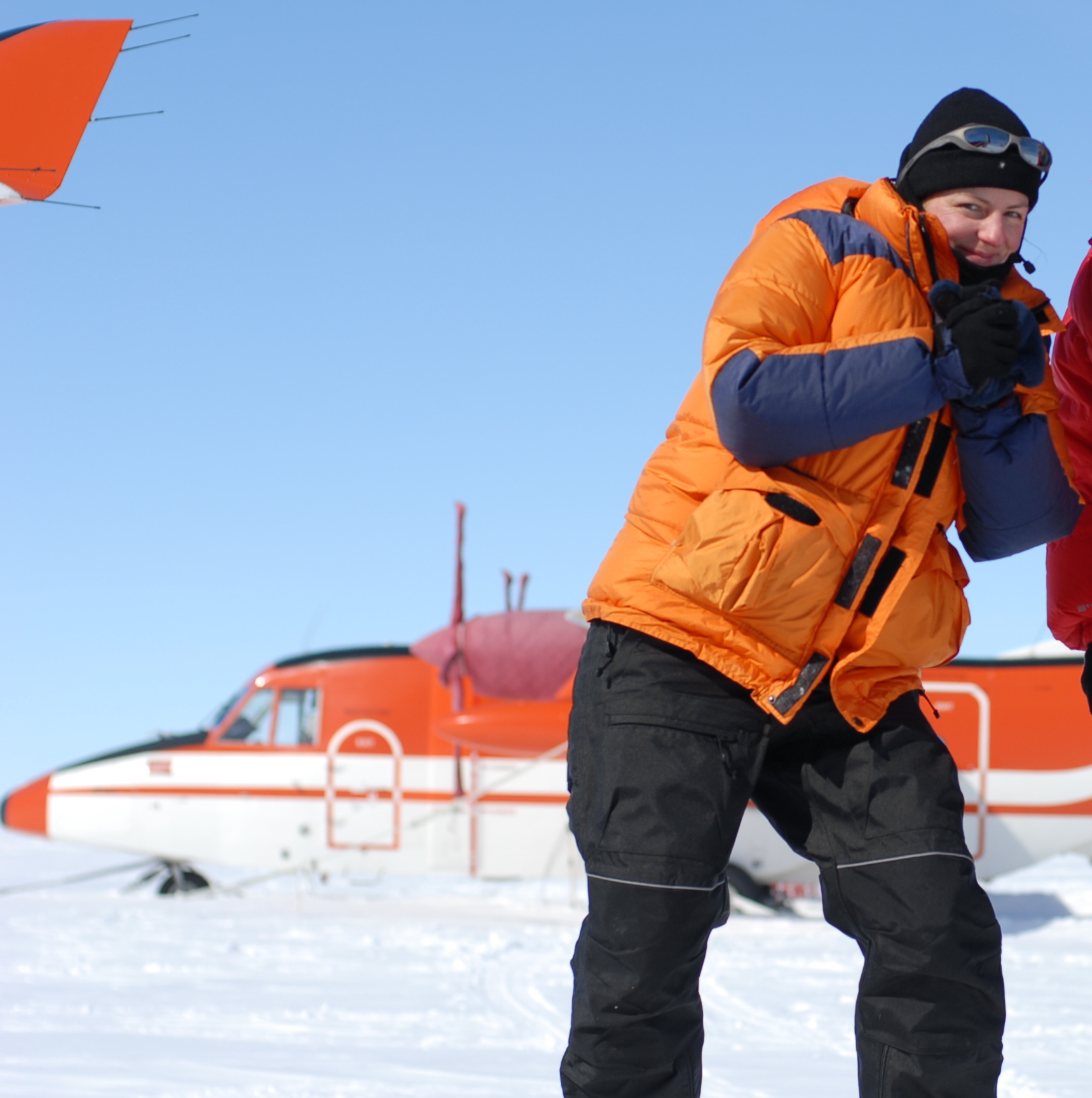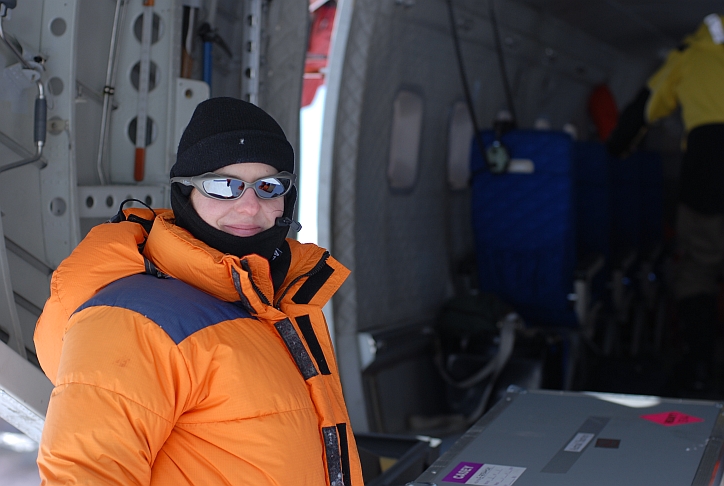Who said stats can’t be cool?
Meet Natalie Kelly, an ecological statistician from our Hobart site. Natalie has just returned from a voyage to Antarctica, where she was leading a team surveying Antarctic minke whale numbers.
This project was carried out with the Australian Antarctic Division to help conserve and manage the magnificent whales of the Southern Ocean.
Boat surveys have shown that Antarctic minke whale numbers are in decline, but the figures aren’t entirely accurate. There’s also an unknown proportion of the animals living in pack ice where the survey boats can’t go. So to figure out how many whales are in these inaccessible areas, it was Natalie’s job to fly over the ice and count the whales.
“Even though we spent hours squashed up against a tiny aircraft window, it was such a great experience. It hasn’t stopped us from returning either. We’ve been back a few times to keep track of the whale numbers and find out if they’re changing,” says Natalie.
Certainly not your average office job.
Before she set out for Antarctica, Natalie used her statistical skills in Tasmanian forests.
“Environmental projects often need mathematical scientists to work out trends in measurements. This can tell us how the environment is changing and whether we need to take action.”
Natalie is now working on the Antarctic Blue Whale Project, where she is developing a survey to gain a more precise estimate of Antarctic blue whale numbers. These whales were pushed to the brink of extinction by whaling operations in the Southern Ocean in the early twentieth century. Thankfully, the species are recovering from the exploitation, but there is still more work to be done.
For more information on careers at CSIRO, follow us on LinkedIn.



